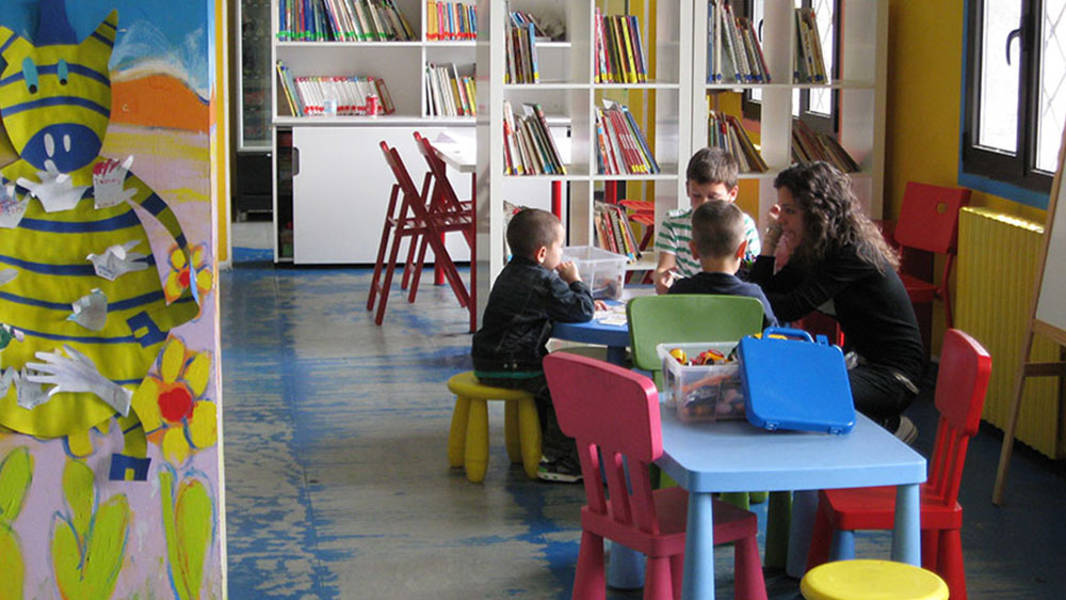
Bambini Senza Sbarre: Humanizing Connections between Children and Incarcerated Parents
Bambini Senza Sbarre believes the relationship between a parent and a child is a fundamental one that should not be severed by the incarceration of the parent. When maintaining this bond means that children have to enter prison, a hyper-regulated environment designed for control, the experience can be jarring for them: confinement, leaving their belongings behind, a search, an uncertain wait.
With support from the Stavros Niarchos Foundation (SNF), Bambini Senza Sbarre has worked to implement concrete interventions in the process that humanize the experience for children. Through the organization’s Yellow Room program in Italian prisons, children have a kid-friendly space in which to await a visit and draw their feelings while their caregivers receives guidance on how to talk to children about a parent’s incarceration. Bambini Senza Sbarre has also created spaces where children can connect with their incarcerated fathers over arts activities, and where the fathers meet together to discuss their parental role.
Since the start of the pandemic, the Yellow Room program adapted its existing “Yellow Telephone” program to provide specialist psychological and emotional support to families of which a member is incarcerated by phone and over email.
Bambini Senza Sbarre’s work and advocacy has helped shaped best practices in the field at a European level. The organization helped shape Italy’s Charter of Rights of Children of Imprisoned Parents in 2014, which in turn informed the guidelines for the protection of children of prisoners issued by the Council of Europe in 2018.
In 2017, Bambini Senza Sbarre launched a training program for Italian correctional officers based on the Charter, the first program in Europe designed for correctional staff based on the perspective and the rights of minors visiting incarcerated parents. The training has reached nearly three hundred of these staff, helping standardize the rules and procedures children encounter when visiting prisons.
The organization continues to expand the scope of its work, opening new Yellow Spaces, offering school programs aimed at reducing stigma, seeking alternatives to detention for mothers, and more.
SNF has also supported organizations in other countries working to benefit young children and incarcerated parents. In the United States, Hour Children serves currently and formerly incarcerated women and their children in New York. In Greece, an SNF grant helped equip a new play space at the Women’s Prison of Eleonas, where children up to the age of three live with their mothers.